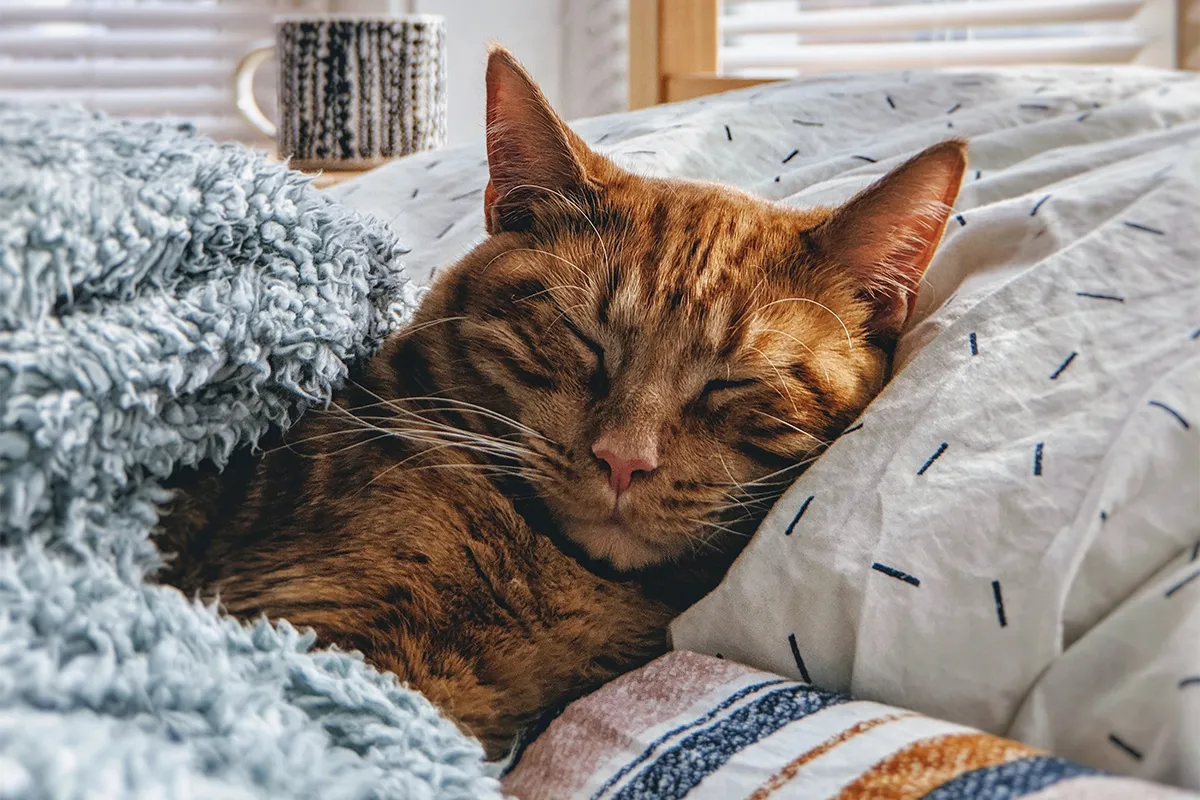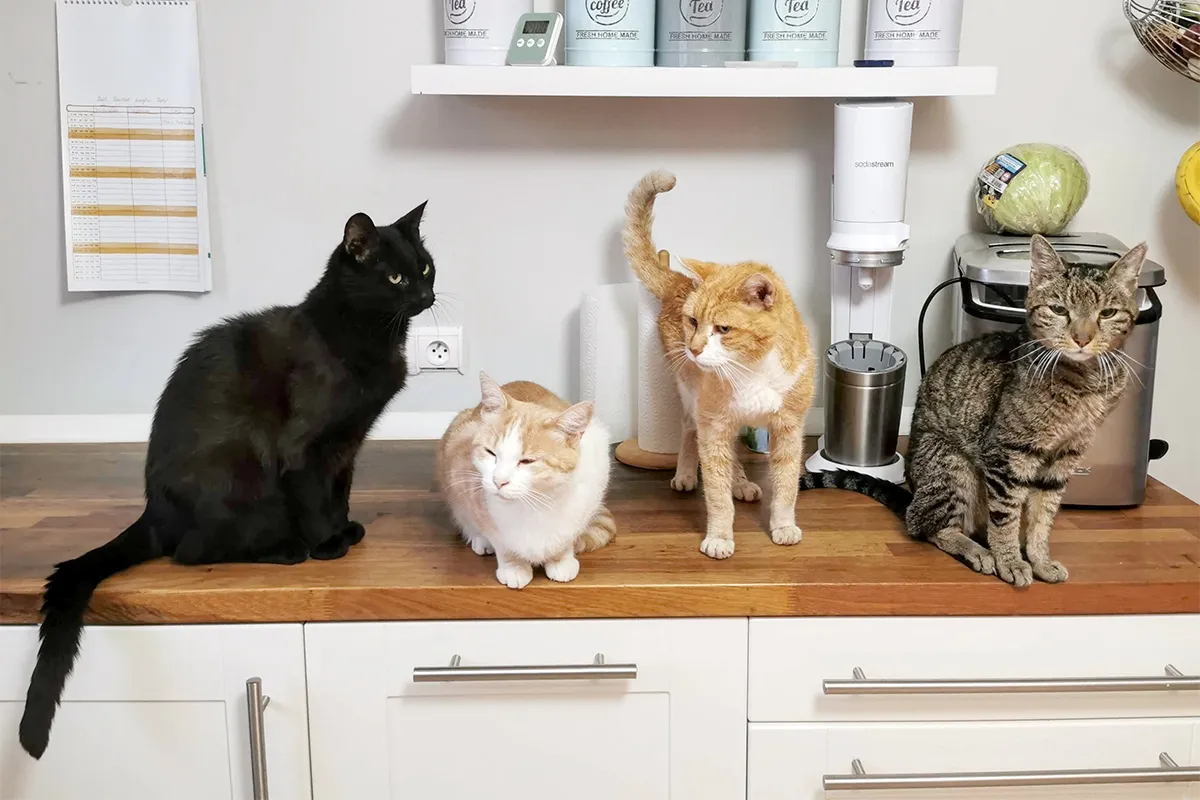Are you looking for foolproof tips on how to bathe your cat without ending up covered in scratches and bites? We’ve got you covered! In the following sections, we’ll share some of our proven methods to make this process as trauma-free as possible for both you and your feline friend. We’ll also address special considerations for newborn kittens, exploring whether you should bathe them.
Table of Contents:
- Foolproof Tips for Bathing Your Cat
- Use Sponge Baths When Possible
- Choose the Right Shampoo
- Use a Sprayer
- Have Plenty of Towels Ready
- When in Doubt, Seek Professional Help
- Should You Bathe Newborn Kittens?
- Why Bathing Newborn Kittens Is a Bad Idea
- Colocation
- Health Concerns
- What to Do Instead of Bathing Newborn Kittens
Foolproof Tips for Bathing Your Cat
Have you ever tried to bathe your cat? I have. When I was a child, we had a cat named Fred. He was one of the cutest cats I’d ever met, but he turned into Linda Blair from The Exorcist the moment we attempted to give him a bath. Have you ever seen a cat go berserk in a closed bathtub? It’s truly astonishing! It became an epic battle, and we ended up with many scratches. Needless to say, we usually let Fred take care of his own grooming. Fortunately, it’s not always necessary to bathe your cat, as most of them take personal hygiene very seriously. However, there are times when your cat gets into something they shouldn’t, or as they get older, they might not be as tidy as they used to be in their kitten days, and you need to bathe them. Since many cats have a strong aversion to water, it can be easier said than done. Follow these tips on how to bathe your cat and make the process as painless as possible for both of you.
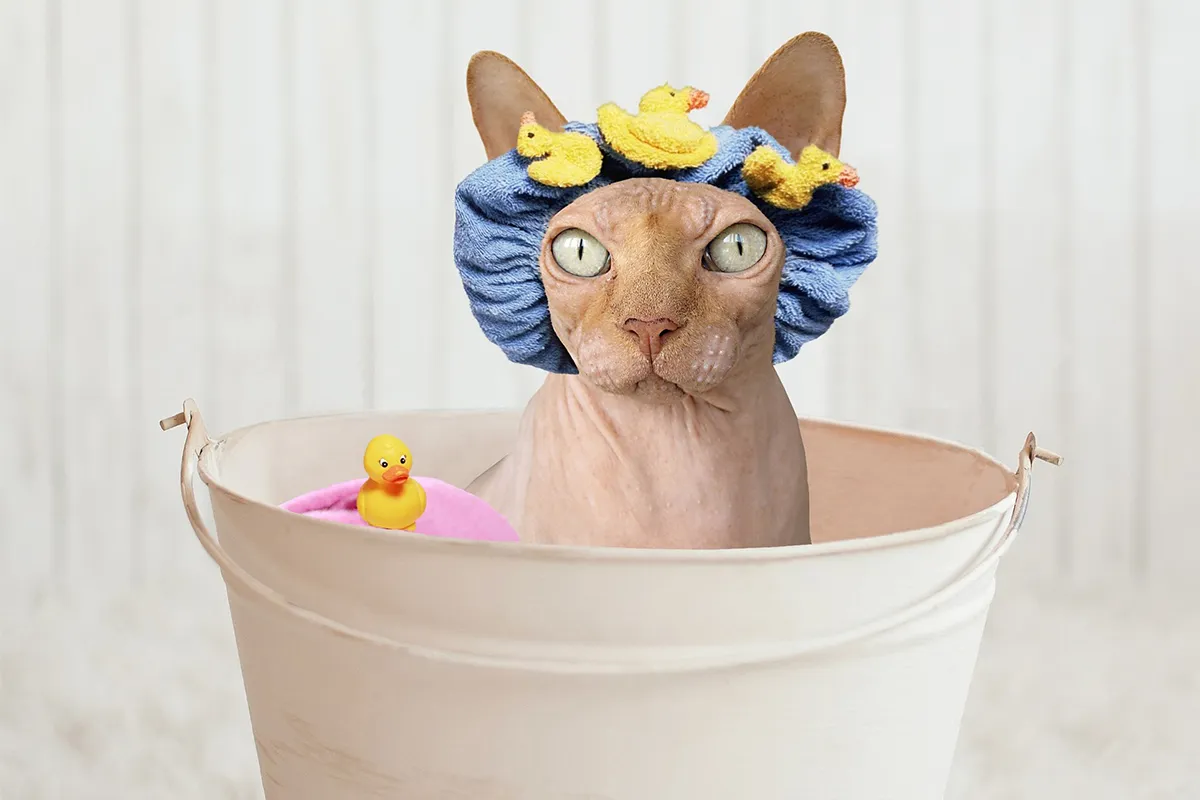
Use Sponge Baths When Possible
Unless you’ve been bathing your cat since they were a kitten, they might feel extremely uncomfortable when submerged in water. If it’s possible, opt for spot cleaning instead. Confine yourself and your cat in a small room, like the bathroom or a pantry, and hold them on your lap while you clean each area with a soft cloth or sponge. Be sure to rinse the shampoo thoroughly, as any residue can dry out your cat’s skin or lead to an upset stomach if they ingest it.
Choose the Right Shampoo
Cats are highly sensitive to scents, and many of them have sensitive skin. Use a shampoo that is gentle and has a very mild scent. I’ve used my own shampoo on my dogs before, but that won’t do for your cat.
- Utilize a Collar and Short Leash
- If you need to wet your cat’s entire body, use a collar and a short leash to keep them in place.
- Be a Part of the Bath
Your cat is likely to be unhappy and uncomfortable during the bath, so join them. Hold them in your lap, pet them gently, and speak softly. If you have a shower instead of a bathtub, consider using the kitchen sink.
Use a Sprayer
Ideally, don’t fill the bathtub or sink with water. If you have a removable showerhead or a dish sprayer, you won’t need to have your cat sitting in a full tub or sink of water. Think of how your hairdresser washes your hair – it’s the same idea.
Have Plenty of Towels Ready
Your cat will get cold after the bath, so have several towels to dry them off. Once the first one becomes saturated, switch to the next. Continue this method until you have a nearly dry towel to wrap your cat in for warmth and comfort.
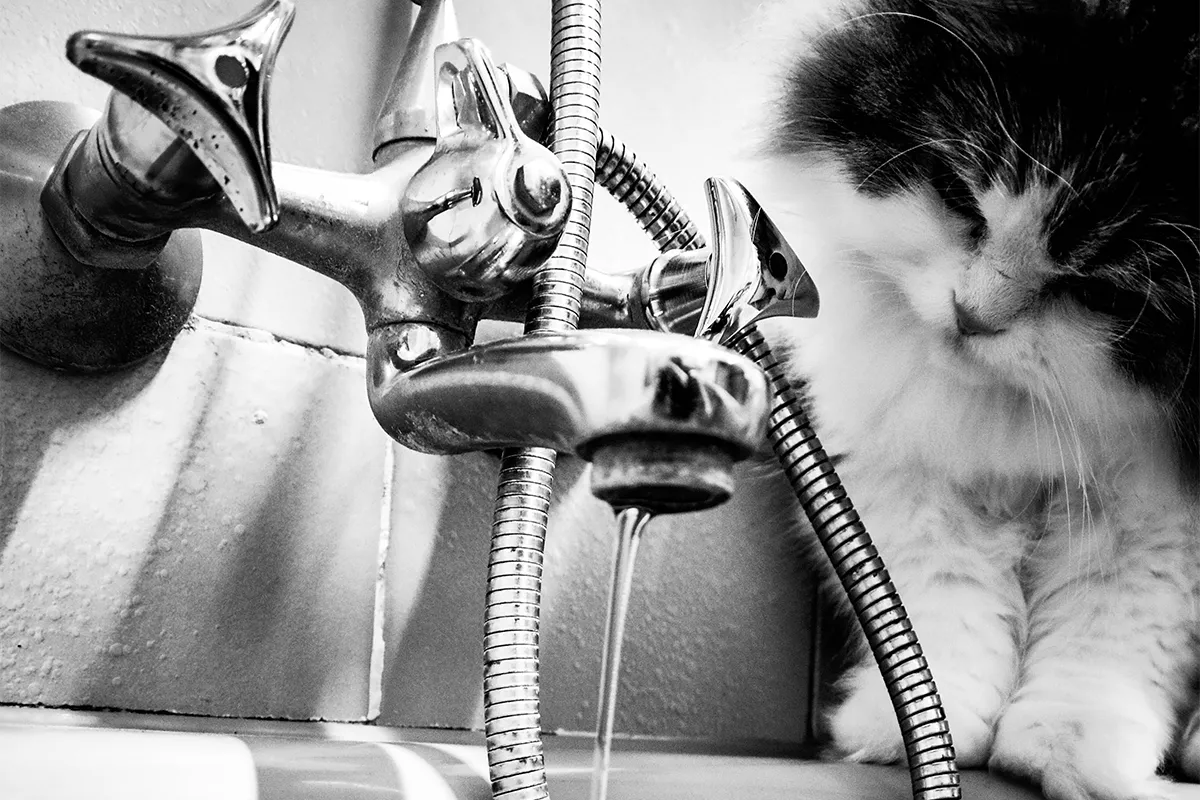
When in Doubt, Seek Professional Help
If you’ve tried all the above tips and still can’t bathe your cat without incidents, it might be best to concede and take them to a professional groomer. Fortunately, you’ll only need to bathe your cat occasionally. These tips should help make the experience as positive as possible for both of you.
Should You Bathe Newborn Kittens?
Bathing newborn kittens may seem tempting for a new cat owner in the midst of the birthing and postpartum process, but it’s not a good idea—actually, it’s a terrible idea. I came across a forum post from an owner wondering if it was okay to bathe newborn kittens because their cat had just given birth. The owner mentioned there was blood, and the kittens were covered in placenta and such. In reality, this is quite normal, but to the uninitiated, it might seem like something out of a horror movie. The owner’s specific words were, “There’s blood on the blankets, and the kittens are covered in stuff. They’re crawling around in it.” I could almost sense the concern in her voice as I read her post, and I felt sorry for her. Nothing was wrong, but she was obviously a bit scared by it.
Why Bathing Newborn Kittens Is a Bad Idea
To start, there’s a whole physical and psychological process that goes along with birth and postpartum. Everything that happens during and after birth is part of how nature ensures that the mother and kittens bond immediately, so interrupting this process in any way is always a bad idea. That said, let’s look at the details.
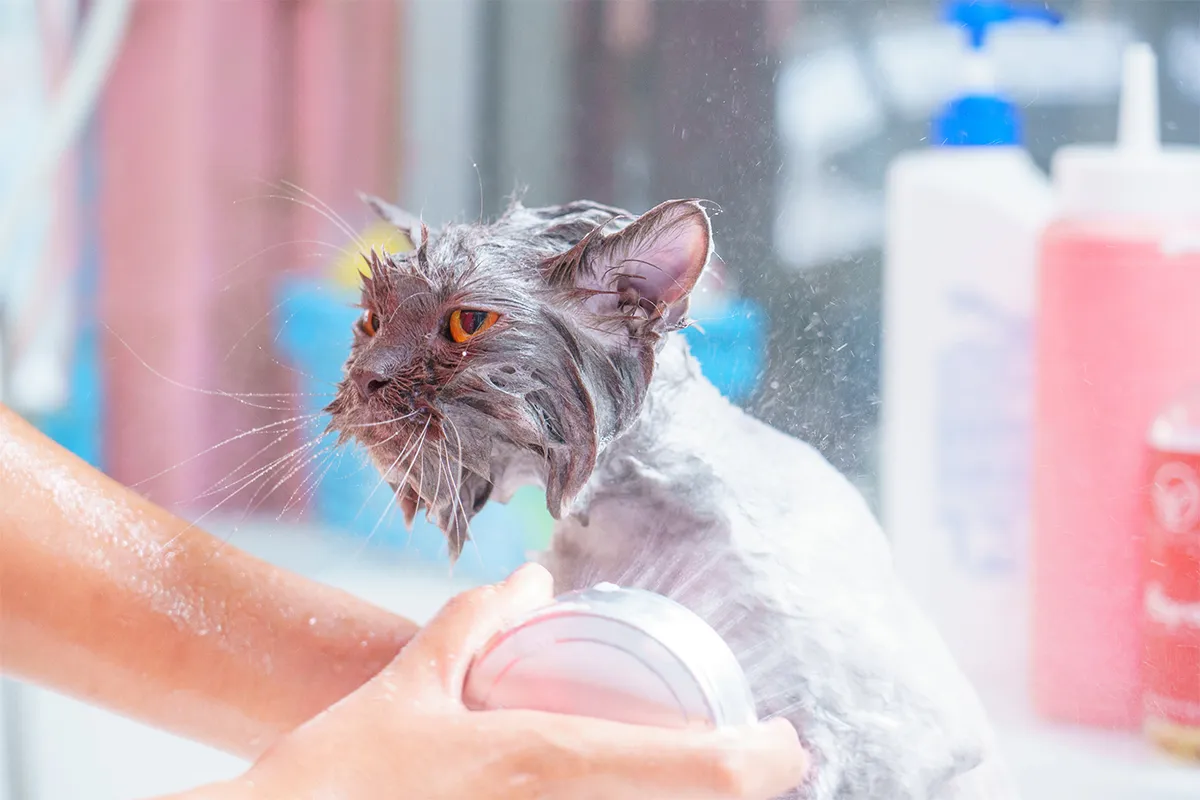
Colocation
When a mother cat gives birth to her kittens, she immediately eats the placenta and chews the umbilical cords. From there, she licks her kittens until they are completely clean. While this might seem gross to us, humans, it’s an essential part of the bonding process. The mother gets to know the scent of her kittens, and the kittens get to know hers. Bathing newborn kittens disrupts this process and can lead to the mother rejecting them.
Health Concerns
Newborn kittens are unable to properly regulate their body temperature. In short, they need to be in that classic kitten pile, all cuddled up against the mother to stay warm. No matter how careful you are, bathing newborn kittens can and most likely will cause them to become cold and possibly sick.
What to Do Instead of Bathing Newborn Kittens
First and foremost, it’s best to do nothing – at least initially. Allow the mother and kittens to go through their entire cleaning ritual, as it helps with bonding, and it gives the mother a chance to rest and recover from birth. If she’s recovered but hasn’t properly cleaned the kittens, take a clean and DRY cloth and gently rub the kittens to remove excess birth fluid and/or blood. Do NOT bathe them or use water. After finishing the dry cleaning – or if the mother has already cleaned the kittens – carefully replace the messy towels with clean ones
